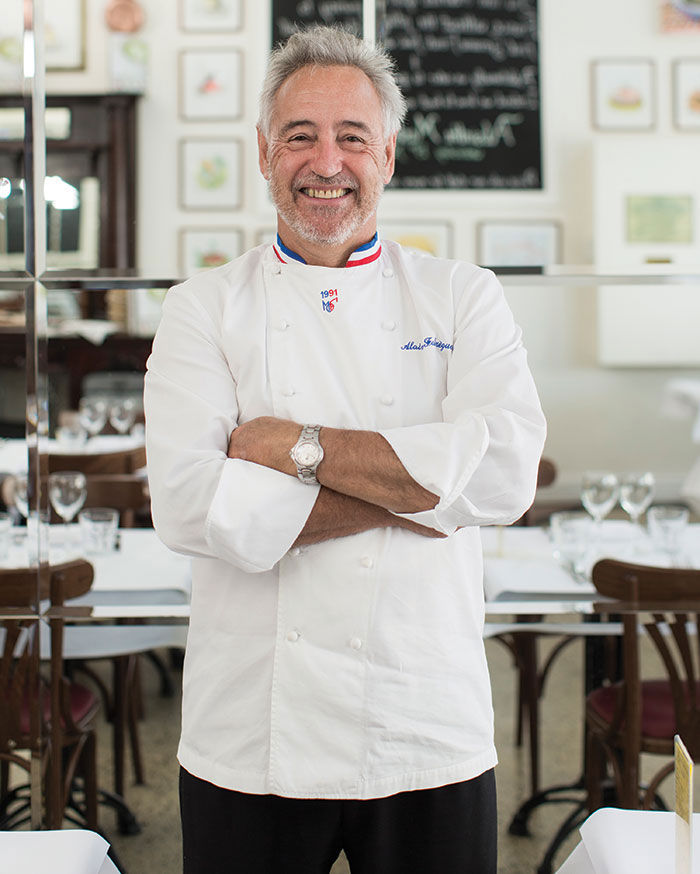It is difficult to find professional and passionate staff, but when you do, it's
a pleasure to come to work. At Bistro des Artistes, we have a fairly small team of staff – just five in the kitchen and five at front of house. Our staff members don't have to be French, or speak the language for that matter – we just try to find people with personality rather than experience. For a waiter or waitress, the
industry doesn't recognise any qualification for serving. There is no apprenticeship to become a maître d', so if we can have a smile to begin with, that's a plus!
When it comes to kitchen staff, some establishments will welcome apprentices and take the time to train them, while others just employ them once they're qualified. It would be more judicious if we were all training apprentices into the industry, then the pool of recruits would be larger and less shallow. This is an issue that is not unique to our city, or even our country. It's a global issue, affecting kitchens everywhere. The world is 'opening up' and people want to travel more than ever these days. This puts pressure on the industry globally, yet if you're a qualified chef, there are jobs waiting for you all over the world.

Alain Fabregues
As restaurateurs, we dedicate so much time to training. It is constant, repetitive and with little light at the end of the tunnel, knowing that tomorrow you will need to train someone else because 'the surf's up' or the girlfriend decided 'Sydney would be a better place to spend summer'.
The majority of the time, staff members leave of their own accord, but they are often poached by other establishments. This practice is prevalent in our industry, and loyalty can be thin on the ground; however our 'free enterprise' mentality is so much better than other systems across the globe. For instance, we can employ or retrench staff according to the amount of business we have, contrary to the mad French scheme that forces you to keep your employees even when business is terrible. They work 35 hours a week, earn 13 months of salary per annum, and cannot be retrenched under any circumstance. Protection keeps your job, not the quality of your work. This is why the unemployment rate in France is 11 per cent – nobody wants to employ because you can't let them go.
It's not easy for a small establishment to prevent losing staff to larger, international restaurants. But then again, it's not mission impossible either.